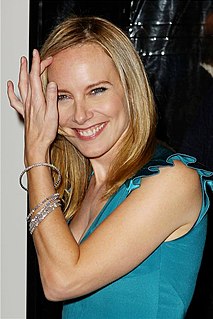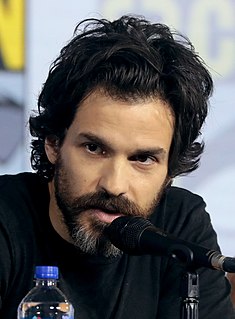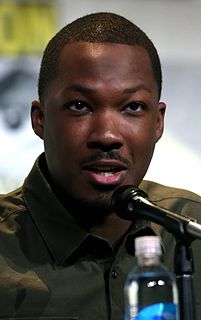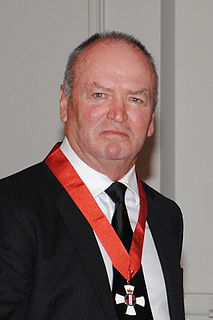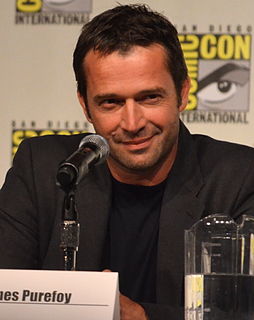A Quote by Amy Ryan
First of all, the actor needs to get out of the character's way. You follow the character without judgment or prejudice or preconceived ideas.
Related Quotes
When I'm writing, I try to have the mask of my character on as I'm walking through the world. When I'm not at my desk, the rest of the time, I try to stay in that character and see the world the way that character would It's almost like method acting in a way — keeping the character close the way the actor keeps a script close and always tries to be in character.
This is a corny actor thing to say, but the first step is that you can't judge the character that you're playing. If it's built in three-dimensional fashion, you'll just play a character who's going out and seeking the best version of their life that they can find. That gives the character an accessibility that everyone can identify with.
When you go for something because you're curious about it, you get psyched up about the chance of getting into it. It's like an actor meets a role, and you slip into that body and see what happens, to experience certain conditions, to adopt a certain character. Even shooting is a study of the character. I think both the character and the actor, and eventually the filmmaker - myself - are finding a way to accept their environment and being accepted and feel comfortable of themselves.
You have to have a lot of ideas. First, if you want to make discoveries, it's a good thing to have good ideas. And second, you have to have a sort of sixth sense-the result of judgment and experience-which ideas are worth following up. I seem to have the first thing, a lot of ideas, and I also seem to have good judgment as to which are the bad ideas that I should just ignore, and the good ones, that I'd better follow up.
You get to know a character that you play on-stage in a pretty profound way over a length of time. I don't want to sound highfalutin and say you become the character, you just start bringing more and more of yourself to the part until the character and actor, it's hard to tell them apart. It's some weird amalgam. In film, because of the period of time, I don't know that you ever get that deep into it.
